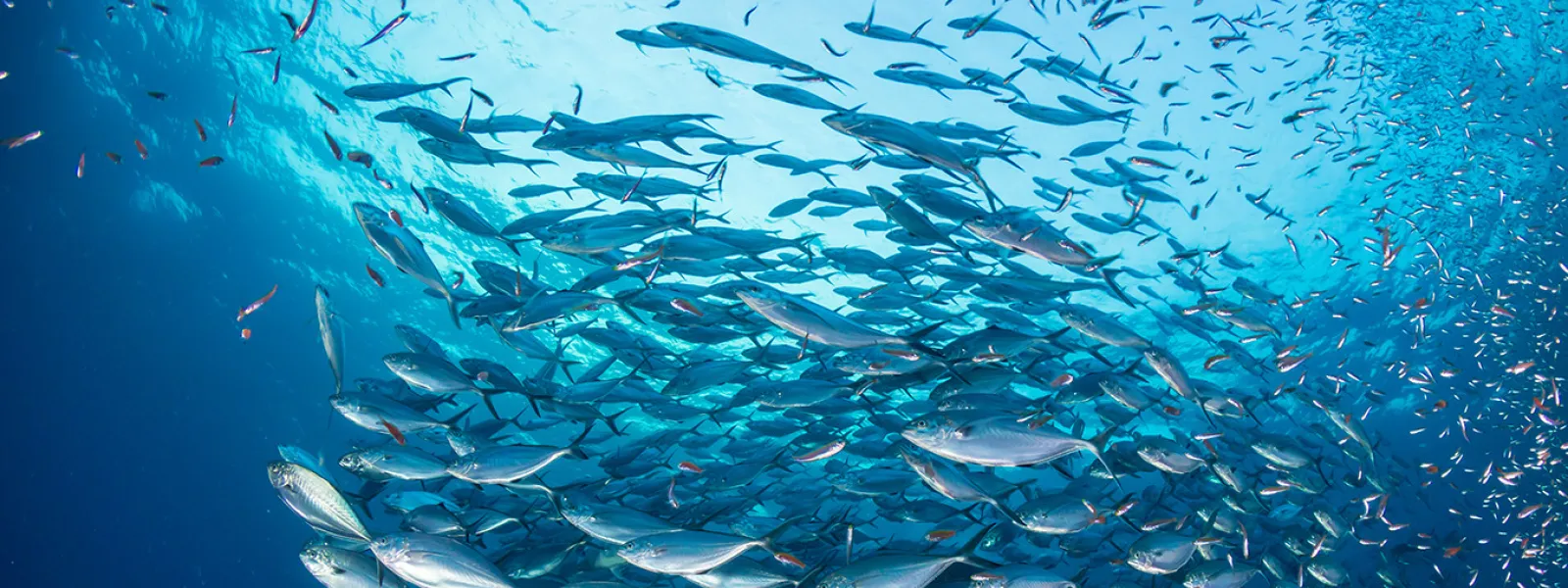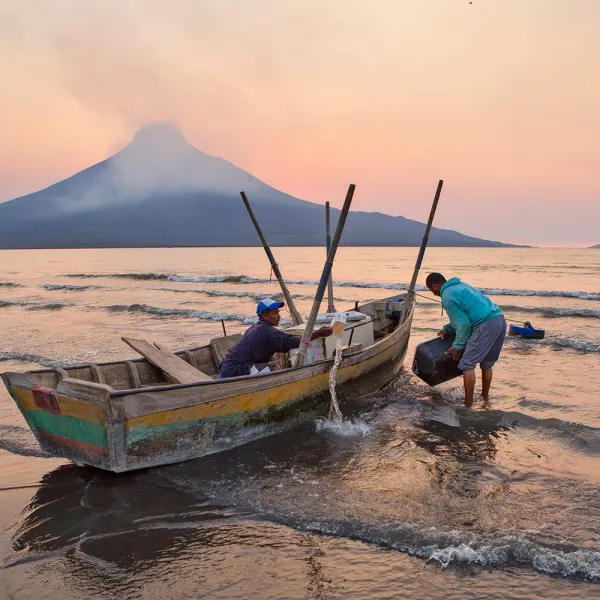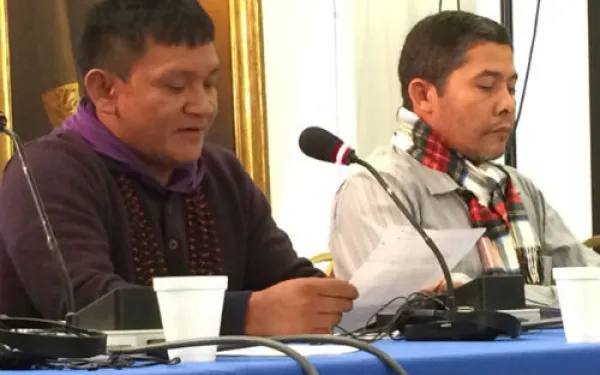
Project
ShutterstockTowards an end to subsidies that promote overfishing
Overfishing is one of the main problems for the health of our ocean. And the provision of negative subsidies to the fishing sector is one of the fundamental causes of overfishing.
Fishing subsidies are financial contributions, direct or indirect, that public entities grant to the industry.
Depending on their impacts, they can be beneficial when they promote the growth of fish stocks through conservation and fishery resource management tools. And they are considered negative or detrimental when they promote overfishing with support for, for example, increasing the catch capacity of a fishing fleet.
It is estimated that every year, governments spend approximately 22 billion dollars in negative subsidies to compensate costs for fuel, fishing gear and vessel improvements, among others.
Recent data show that, as a result of this support, 63% of fish stocks worldwide must be rebuilt and 34% are fished at "biologically unsustainable" levels.
Although negotiations on fisheries subsidies, within the framework of the World Trade Organization, officially began in 2001, it was not until the 2017 WTO Ministerial Conference that countries committed to taking action to reach an agreement.
This finally happened in June 2022, when member countries of the World Trade Organization reached, after more than two decades, a binding agreement to curb some harmful fisheries subsidies. It represents a fundamental step toward achieving the effective management of our fisheries resources, as well as toward ensuring global food security and the livelihoods of coastal communities.
The agreement reached at the 12th WTO Ministerial Conference provides for the creation of a global framework to reduce subsidies for illegal, unreported and unregulated fishing; subsidies for fishing overexploited stocks; and subsidies for vessels fishing on the unregulated high seas. It also includes measures aimed at greater transparency and accountability in the way governments support their fisheries sector.
The countries agreed to continue negotiating rules to curb other harmful subsidies, such as those that promote fishing in other countries' waters, overfishing and the overcapacity of a fleet to catch more fish than is sustainable.
If we want to have abundant and healthy fishery resources, it is time to change the way we have conceived fishing until now. We must focus our efforts on creating models of fishery use that allow for long-term conservation.
Partners:

Colombia must choose between gold and water: Al Gore
Colombia faces a pivotal choice for its future. It must choose between protecting its high-altitude moors as its water source for millions of people or authorizing large-scale mining in these fragile ecosystems. AIDA, together with its allied organizations, is working to convince the authorities to choose water and this cause recently won a new ally: Al Gore. The former U.S. vice president, a Nobel Peace Prize laureate for his success at raising awareness about climate change, brought up the issue of mining in the moors, known locally as páramos, in April. “Colombia must choose between the gold in the páramo and profits for a few people, or the drinking water that supplies all of its citizens,” he said at an international summit on the environment in Bucaramanga, a city in northeastern Colombia that gets its water from the Santurbán Páramo. We’ve been calling on the Colombian government to protect this moor and others around the country from mining, given that they provide 85% of the country’s water. Will this happen? By law, the government must keep mining out of the páramos. But to do this, their boundaries must first be mapped. This poses a problem. In April, the government unveiled its map showing that the Santurbán Páramo stretches over 42,000 hectares (104,000 acres). That’s more than the 11,000 hectares of previous estimates. But it’s only about half the 82,000 hectares measured by the Alexander von Humboldt Biological Resources Research Institute, an independent state research center that used a larger scale map than the government. The larger scale provides richer details that show how the moor extends further. The government has not adopted an official measurement, leaving important parts of the moor open to mining, an industry it is promoting to spur economic growth. But at what costs? Large-scale mining will cause irreversible damage to these flora-rich moors that not only supply water to millions of people but also help mitigate the effects of climate change by capturing carbon emissions. Gore was clear on what choice he recommends for Colombia or any country facing questions of economic growth versus environmental protect. “Without a planet, there is no economy that is worth anything,” he said. You can help us spread the message by making a donation and signing our petition so that we can continue the fight to save Colombia’s moors. Thank you!
Read moreOrganizations come out in defense of the Veracruz Reef System
Technical and legal arguments are submitted in support of a lawsuit against modifying the boundaries of the Veracruz Reef System National Park in eastern Mexico, a site protected by international obligations to preserve the natural barrier against storms and hurricanes. Veracruz, Mexico. Six civil society organizations have submitted to a Mexican court an amicus curiae brief containing legal and technical arguments that strengthen arguments in a lawsuit against a government decree to modify and reduce the boundaries of the Veracruz Reef System National Park. The proposed modification puts conservation of this internationally important wetland at stake. The organizations submitted the friend of the court brief to the Third Tribunal of the District of Veracruz on April 25. They are the Interamerican Association of Environmental Defense (AIDA), the Mexican Center for Environmental Law (CEMDA), the Strategic Human Rights Litigation Center (Litiga OLE), Pathways and Encounters for Sustainable Development (SENDAS), Pobladores A.C. and the Veracruz Assembly of Environmental Initiatives and Defense (LAVIDA). The Veracruz Reef System in eastern Mexico was declared a natural protected area in 1992 to safeguard its diversity of species and a rational use of its resources, and to encourage research into the ecosystem and its balance. In 2004, the Veracruz Reef System was included as a wetland of international importance under the Ramsar Convention, an international treaty to protect wetlands. The amicus curiae (friend of the court) brief highlights the importance of the reef system for Mexico and the region. “Coral reefs are natural barriers against large waves and storms like Hurricane Karl, which hit Veracruz in 1992,” said Sandra Moguel, a legal advisor to AIDA. “Reefs also provide abundant fishing and valuable information for medical research. They’re great spots for recreation and they help to sustain marine life.” The legal brief also argues that the decree, from Mexico’s National Commission on Protected Areas (CONANP), threatens regional biodiversity, violates the human right to a healthy environment, and breaches Mexico’s international obligations to protect this ecosystem. “The local population is more exposed to suffer the impacts of hurricanes and other climate phenomena, because the decree removes the Punta Gorda and Bahía de Vergara reefs from the national park,” said Xavier Martínez Esponda, regional director of CEMDA for the Gulf of Mexico. The organizations’ brief explains how CONANP’s decree infringes specific national laws and international treaties. For example, the Organization of American States’ Convention on Nature Protection and Wild Life Preservation in the Western Hemisphere states that natural park limits can only be modified by legislative authorities. CONANP is not such an authority. The decree also violates the Ramsar Convention, given that the modification of the national park’s defined boundaries did not follow the procedures established by that intergovernmental treaty for the protection of wetlands of international importance. The brief concludes by making it clear that CONANP’s decree is a regressive measure that erases the benefits of environmental protection attained with the creation of the protected area in 1992. “Setbacks like this can cause irreparable damage,” said Moguel.
Read more
Frustration to hope: Finding the drive to continue from those you help
By María José Veramendi Villa, senior attorney, AIDA, @MaJoVeramendi I can get frustrated in my work as an environmental and human rights lawyer. It is frustrating to explain that the work we do on cases of human rights violations may not produce immediate results. It is frustrating to know that our work is a struggle that can take years to find justice for victims and induce change in state policies and our societies. It is frustrating to watch programs designed to protect human rights come under the influence of political interests. The dearth of resources for pursuing these cases is also frustrating. So too are the long waits for justice – or injustice. So what do we do when we get discouraged? My answer is to return to the origins, the basics and the very reason for our struggle and commitment: the victims. I relearned this lesson in March. On a trip to Washington D.C., I met two Brazilian fighters for the cause of their communities: Alaíde Silva and Josías Manhuary Munduruku. Alaíde had traveled for days from Buriticupu, a municipality in the northeastern state of Maranhão, and Josías from Jacareacanga, a municipality in the northern state of Pará, to participate in a hearing (in Spanish and Portuguese) before the Inter-American Commission on Human Rights. They came to present information on how Brazilian judges are continuing to use a law from the country’s 1964-85 dictatorship to violate their right to access to justice. The law is called Security Suspension. It allows the federal government to request the suspension of judicial rulings. The government has used Security Suspension to invalidate rulings that favor the rights of indigenous peoples and other communities against the development of mega-projects like the Belo Monte hydropower dam in the Amazon. The government can do this on the basis that any adverse rulings to “development” projects are threats to national security or to social and economic order. At the hearing, Josías described an imminent threat to the Munduruku indigenous community of 11,000 people in 118 villages. The Brazilian government plans to build a hydropower complex (in Spanish) on the Tapajós River and its tributaries—and has not followed a law requiring it to consult the Munduruku and to obtain their prior, free and informed consent. He said flooding from the project threatens to devastate his people’s land and the survival of their community and culture. He explained how a judge revoked a favorable court decision for his people, allowing the project to continue in open violation of their rights. “We want respect for our land, our river, our sacred sites, our cemetery. And want to be consulted!” Josías said. Alaíde spoke about a similar plight. He explained how Vale, a Brazilian mining company, is enlarging the Carajás Railroad to the detriment of 1.7 million people in 27 municipalities in Maranhão and Pará and in at least 100 indigenous, Afro-descendants, peasant and urban communities on the banks of the railway. The railroad stretches 900 kilometers from the Carajás mines in Pará to the Ponta da Madeira Maritime Terminal in Maranhão. It transports iron, manganese, copper and coal. With the expansion, Vale will duplicate 115 kilometers of the line to increase transport capacity and the flow of minerals. Alaíde said the impacts are vast. These range from the noise pollution caused by the grinding of the train wheels on the tracks and from the train horn, to the running over of people and animals, to the displacement of communities, villages and families without fair compensation. Alaíde provided details on how Vale terrorizes the population, co-opts leaders, intimidates people and spies on social movements, all in the name of meeting its own interests. As with Tapajós, Security Suspension was used to revoke a court ruling that had favored the communities. That decision had ordered Vale to suspend construction and conduct an environmental impact assessment with a detailed analysis of all the existing indigenous and Afro-descendant communities along the railroad. But with Security Suspension, this ruling was overturned with the argument that suspending the project would affect the economic interests of the state. These are just two examples of the impact of Security Suspension. There are many more instances in which the rights of communities and people have been affected by major “development” projects justified by “economic interest, public order and safety.” We hope that cases like these will expose the impact that Security Suspension has on the human rights of hundreds of people and communities, and we hope that this will drive international organizations to call on Brazil to change this legal instrument. Thanks to everyone who worked so hard to make the hearing possible. Thanks to our colleagues in Brazil without whose work and commitment Alaíde and Josías would never have been able to make the long journey. And thanks to these two Brazilian human rights fighters for a lesson that drives away the fog of frustration and allows the sun to shine again. I want to dedicate this post to my dear former colleague Joelson Cavalcante, who recently left this world to become a being of light. With him I visited the Xingu River in the Brazilian Amazon for the first time, and I will never forget his happiness and his big smile when, after a year outside his country, he could once again swim in those waters. In his memory, the fight continues.
Read more